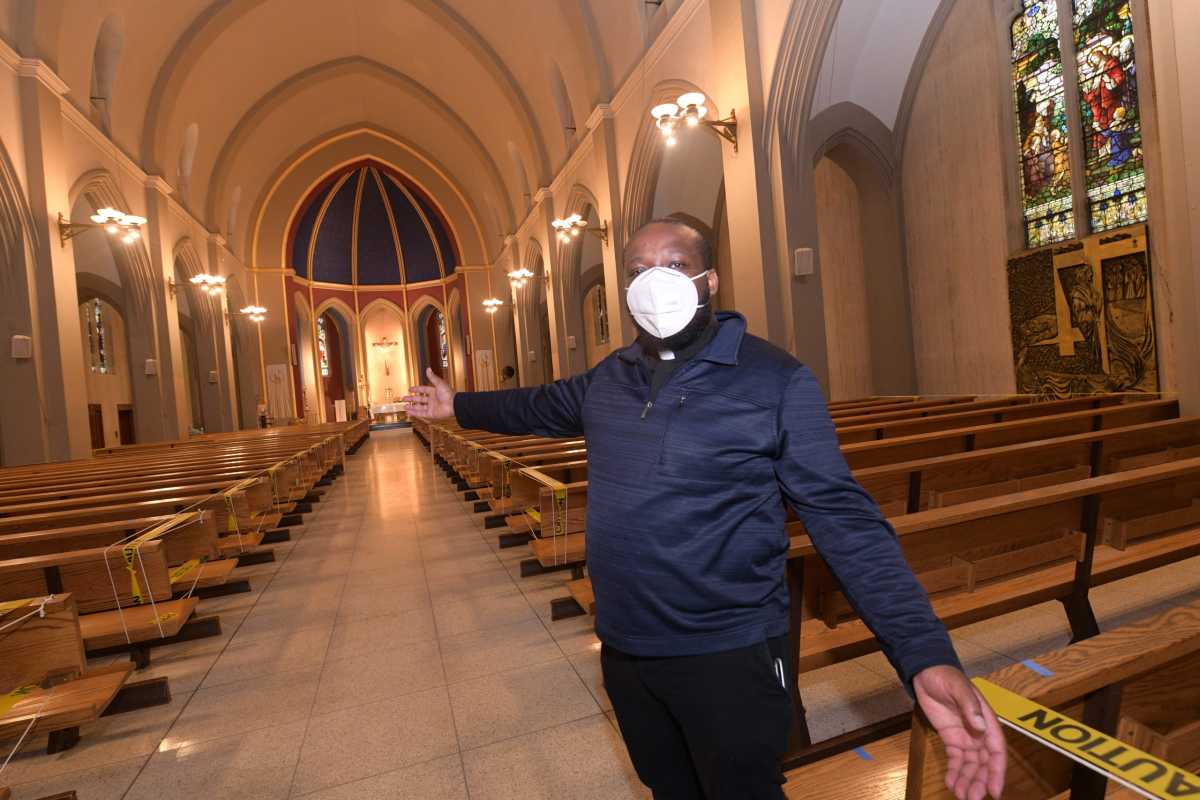Houses of worship can reopen in New York, but restrictions that require both social distancing and gatherings of 10 people or less during prayer services to prevent the spread of the deadly COVID-19, Mayor Bill de Blasio said Tuesday.
The new order instilled some optimism amongst the religious leaders who have been quietly lobbying the administration to allow them to reopen with proper safeguards and social distancing. It was some of these gatherings at churches, synagogues and mosques where many people in close quarters contracted the virus, sometimes killing many of those in the community.
The new edict, while optimistic, presents significant challenges to some religious institutions forcing them to pick and choose who will be able to enter a sanctuary and who won’t. While many churches have chosen to open their doors, they do so for limited times and without organized services – only private prayers in most cases. Mosques are mostly limited, with many choosing not to open because of the possible chaos of thousands trying to jam their doors all at once. And synagogues too face the challenge of maintaining a 10 person korum or “minyan” of 10 men, which would preclude women from joining in separate prayer in the building.
“This has been a test of faith, we’ve gone through so much and religious leaders, the devout, felt the pain of people they worship with,” de Blasio said at his news conference. “Religious services are so important to everyday life, – faith, tradition – the mosque, church, synagogue, all want to pray together. The most important holidays, Easter, Passover Ramadan – we all had to make sense of the holidays and it was very hard.”
But he added, “large services with large numbers – not at this time because it would endanger everyone – we must be smart as we are making progress against this disease.”
Father Dwayne Davis, pastor of the popular St. Thomas Aquinas Church in Flatlands, Brooklyn, welcomed the reopening as a note of optimism in a community hard-hit by the pandemic.
“Our parish has begun to reopen for private prayer from 9-1 p.m. and my other parish of Our Lady Help of Christians is open 8-12 noon, but we are really looking forward to the Holy Eucharist and getting back to services,” said Father Davis as he worked with volunteers on their sixth week running a food pantry out of their school building. “It was such great joy to see parishioners again.”
Davis said his parish went through terrible times with COVID-19, losing about 25 people to the virus, including a father and son.
“It was really horrible, but we are just looking forward to having services together and getting past this very tough time,” Davis said.
For the Muslim community, it was also very difficult. The huge Makki Masjid on Coney Island Avenue in Kensington remains closed because they fear they will not be able to control the huge crowds who will jam the three-story sanctuary.
Next door is the Al-Rayaan Funeral home, a huge tractor-trailer refrigerator truck donated by the community sitting in front – at one point held 80 bodies of the Muslim community. The home handled 275 dead during the height of the pandemic – up to 20 funerals a day – when normally, they do 250 funerals all year.
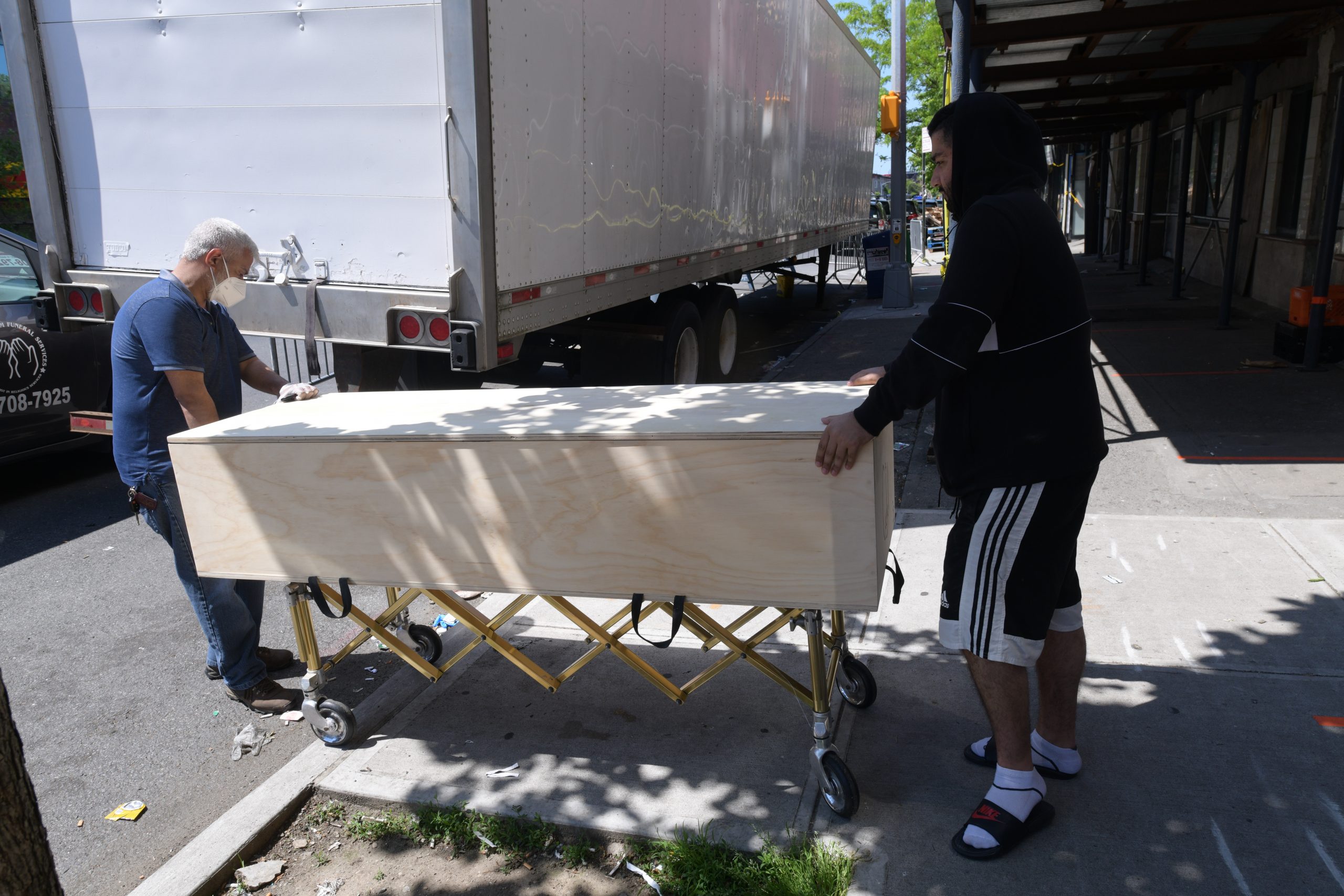
Imtiaz Ahmed, owner of the funeral home, and manager of the mosque, said it is impossible to re-open the mosque, especially 3 days before the end of Ramadan.
“Unfortunately, nobody pays attention to social distancing and this mosque, we get 10,000 people and this is the biggest prayer day of the year – so who are you going to tell they can’t pray,” Ahmed said. “So we need to prepare for the holiday, but nobody is working on it. We cannot manage this much people – 10,000 people attend this mosque and we cannot manage that many people.”
Ahmed says this was one of the most difficult times for him – he too coming down with COVID-19 – he was sick for 2-3 days, but “thankfully, my family stayed healthy.”
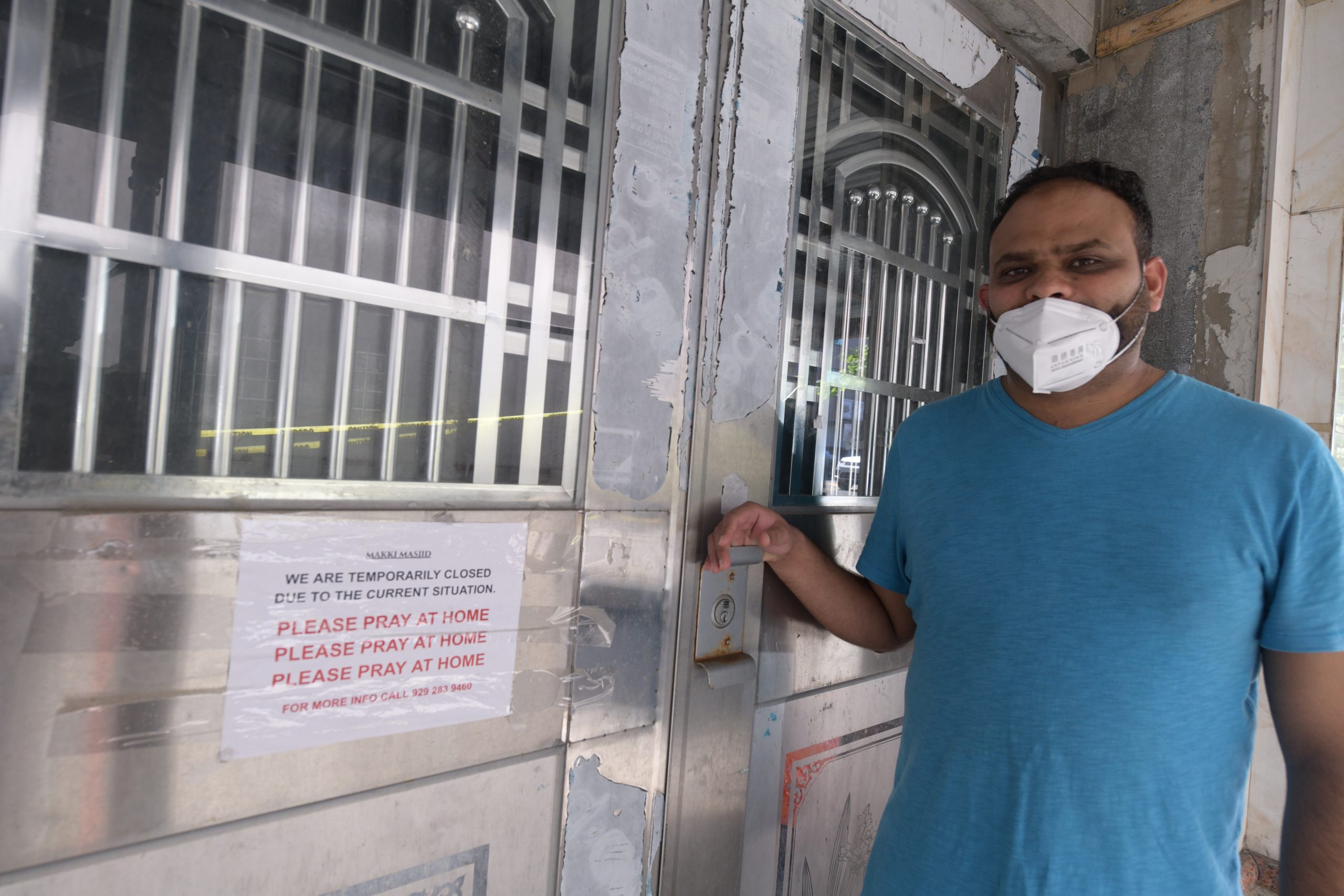
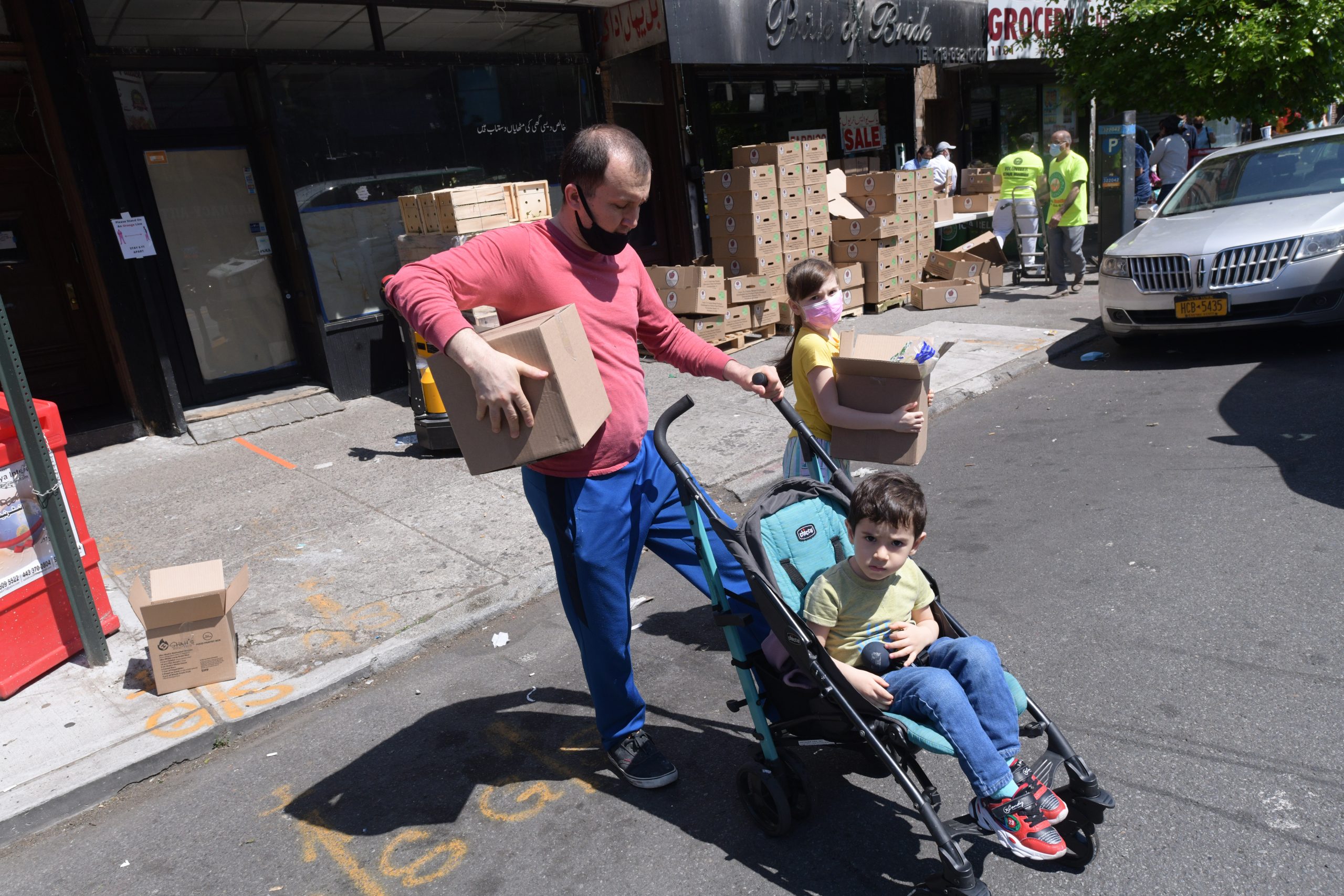
But the community suffered – a food line next door to where they were removing pine boxes, volunteers were giving out their own boxes of food to feed families hard-hit not just health, but economically by the pandemic. But Ahmed said the community has stepped up, donating masks, gloves, and money to help people struggling, but “everybody stepped up to help.”
In the Jewish community, different sects have reacted differently to the COVID-19 outbreak, some of their zip codes hard hit by hundreds of deaths and illnesses. Despite this, some residents have covertly held services – some of those closed down by police to prevent social gatherings and prevent the spread of the virus.
A more visible defiance of the health law was seen in the Satmar community where covert prayer services were disrupted by police, yeshivas forced to close and most visible was the funeral for a rabbi in which 2000 people jammed the streets of Williamsburg, in violation of the gathering edict.
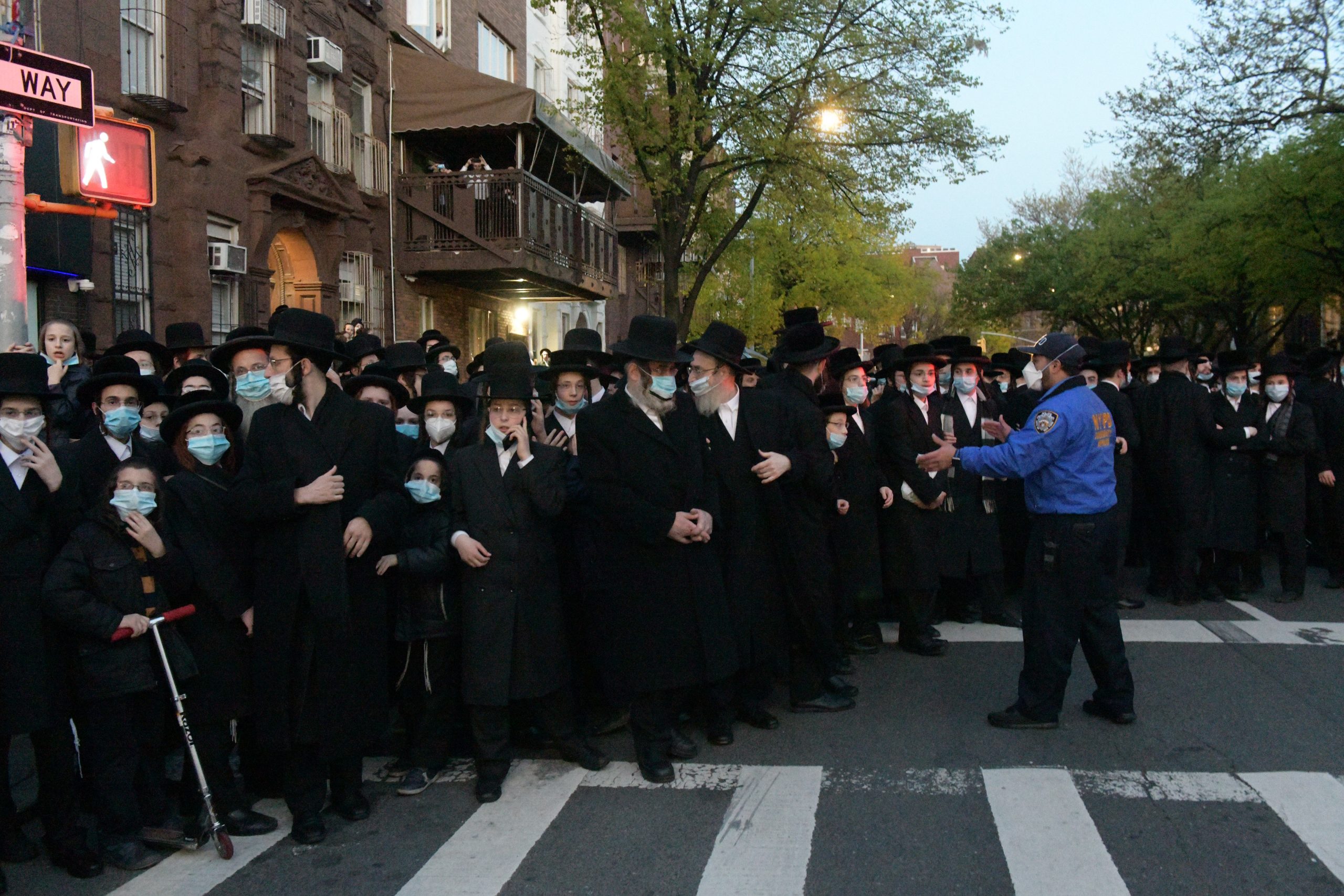
Now, many residents are seeking further relaxation of the rules, saying that it is impossible to hold services for 10 people because Jewish law say they must have 10 men to conduct services – which leaves out women from taking part if the rules are obeyed. And if one person of the 10 goes to use the bathroom, does the ceremony need to pause?
Rabbi Motti Seligson of the Chabad Lubavitch movement said the Lubavitch World Headquarters at 770 Eastern Parkway has remained closed as per Governor Andrew Cuomo’s order. Some synagogues have chosen to also stay closed because of the inability to regulate how many people will attend at one time.
At first, many synagogues resisted attempts to close them, but as the death toll mounted and families became ill, the community realized that they needed to wait out the pandemic than to risk more lives. But the warnings came late for some communities as Mayor de Blasio continued to allow services – leading to the huge Purim celebration in which many people gathered and spread the virus.
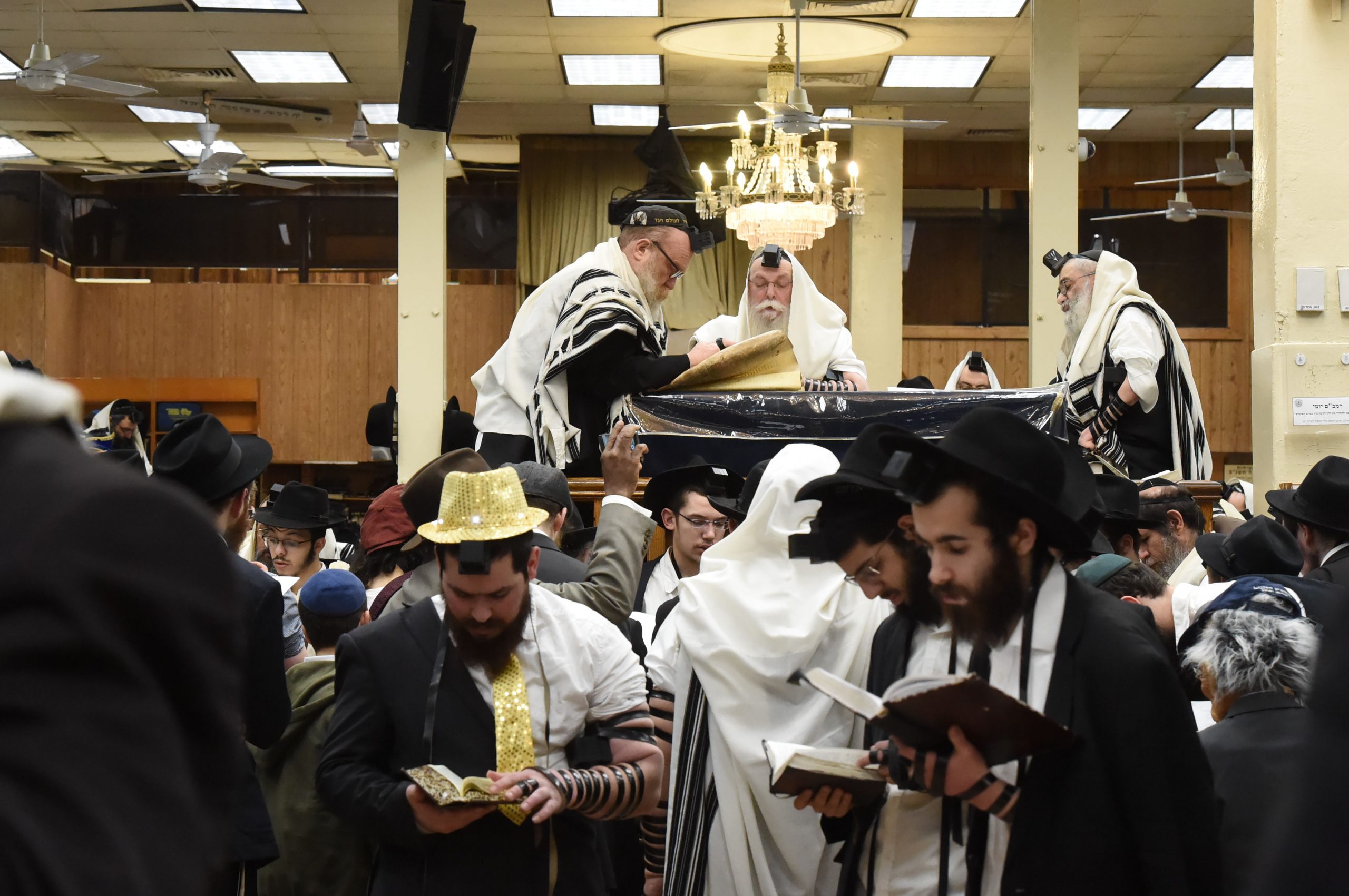
But the quarantine has taken a toll on the Jewish community – many people losing jobs and becoming stir crazy in their crowded homes on lock-down 24 hours a day, for weeks at a time.
“We are grateful that the curve has flattened to the point where authorities feel it is safe to once again to gather in synagogues – even with the limitations,” Seligson said. “That we are here is very good and we have to acknowledge that the worst is behind us. People know prayer is a crucial element of a healthy society and a healthy life. Ensuring that there is the ability to gather and pray is something that will only help people through this most difficult time.”



